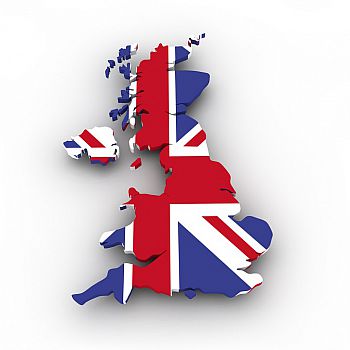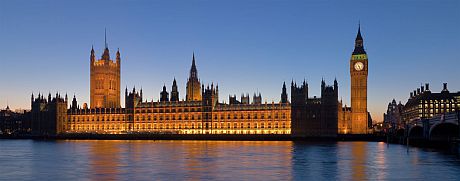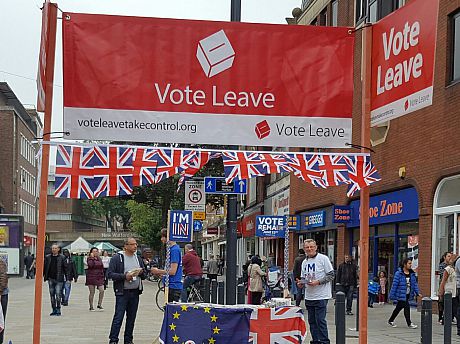Brexitania and Democracy
Gerard Delanty is Professor of Sociology and Social & Political Thought in the School of Law, Politics and Sociology at the University of Sussex.
It has been widely commented that the so-called Brexit outcome of the EU Referendum has led to the most serious political crisis since 1945. The government has no clear plan and the opposition has all but collapsed. At a time when leadership is called for, it is strikingly absent.
The decision to call the Referendum in the first instance can be said to be truly an example of political folly of the highest order, comparable to the equally disastrous decision of the UK government to go to war against Iraq in 2002. Undoubtedly David Cameron is now regretting his gamble to call a referendum to solve an internal conflict in the Conservative Party. The possibility of the Brexit outcome was always to be reckoned with.

The Brexit vote was in part inspired by the claim that the EU is undemocratic. There is some truth to that, but the UK political system is in fact more undemocratic.
The result of such folly is a deeply divided country, a terrifying increase in hate crimes, a huge rift between the UK and the rest of Europe that will not be easy to reconcile, an economic and financial crisis that has massively deflated pension trusts, and above a political and economic crisis that has brought to country to the brink of a serious crisis of governability, which will very likely end in the collapse of the UK with the case for Scottish independence gaining momentum. If this comes to pass – it is by no means certain – it will then precipitate a chain of events in Northern Ireland.
The Brexit vote was in part inspired by the claim that the EU is undemocratic. There is some truth to that, but the UK political system is in fact more undemocratic - and if the narrow majority holds sway, democracy will be yet more compromised. The existence of an unelected upper house, an hereditary head of state, a secret honours system, a political system based on elitism, the office of PM (who can act by royal prerogative), the institution of the Crown in parliament, and the first-past-the-post system, all underline the absurdity that Brexitania is more democratic than the EU.

On the issue of loss of sovereignty, it should be noted that:
(a) National governments still retain sovereignty in almost everything and that most EU legislation comes in the form of directives that are translated into national law in ways that are dictated by national contexts.
(b) The UK lost complete sovereignty in 1941 when the US entered the war and saved Britain from defeat. Total sovereignty is an illusion.
(c) The problem of sovereignty – the locus of power – is certainly a problem for the EU in the case of the single currency, which locks many of the weaker countries into German capitalism. This is not a problem that the UK has, and thus it does not suffer from the undoubted major structural problem of the EU.
(d) On the vexed issue of immigration, which is demand-driven, it almost certainly will not be significantly changed in whatever settlement is reached, since this would almost certainly involve membership of the EEA. It would in any case require a new hard frontier between Northern Ireland and the Republic. It is hard to see how this is politically feasible.
Ironically many of those who voted for Brexit will bear the worst costs of economic decline and financial crisis.
It is evident that the Brexit vote was also a protest vote and that the main target was not necessarily the EU. Voters voted leave for different reasons. Clearly one major factor was a protest against decades of neoliberalism and so-called austerity measures. Immigration has nothing to do with this. The real target was British elites, many of whom are only partly democratic.
Ironically many of those who voted for Brexit will bear the worst costs of economic decline and financial crisis, and in the end the elites win. In fact a cruel trick was played on leave voters by cynical politicians who produced arguments that had no basis in fact, and have already recoiled on several of their manifestos. It is therefore difficult to see how the case can be made for democracy being best served by invoking Article 50.

The UK is a broken country facing a severe crisis of governability.
However, simply doing nothing, sometimes a necessary option, is not the solution, since it will cultivate an intolerable level of uncertainty and, with this, further social malaise and political unrest.
The Referendum reveals one important sociological truth: the major divisions in Europe are not between countries or with the EU but within countries. This is dramatically highlighted by the Brexit outcome which has produced numerous fault lines. The UK is a broken country facing a severe crisis of governability.
The Referendum needs urgently to be revisited by parliament. This will be only the first step in a new settlement that will have to address the reasons why people voted for this outcome. One of the main obstacles to be overcome is the disproportional influence of UKIP and their hard-line right in the Conservative Party. The Referendum was a failed and misguided attempt by the Prime Minister to sort this problem out, which ended up making the problem worse.
The UK political field differs from other European countries in that the populist right – anti-immigration, Euro-sceptical – has a stranglehold over the main centre right party and has now engulfed the entire political system. In fact, there is nothing more European than UKIP which uses democracy to undermine democracy.





